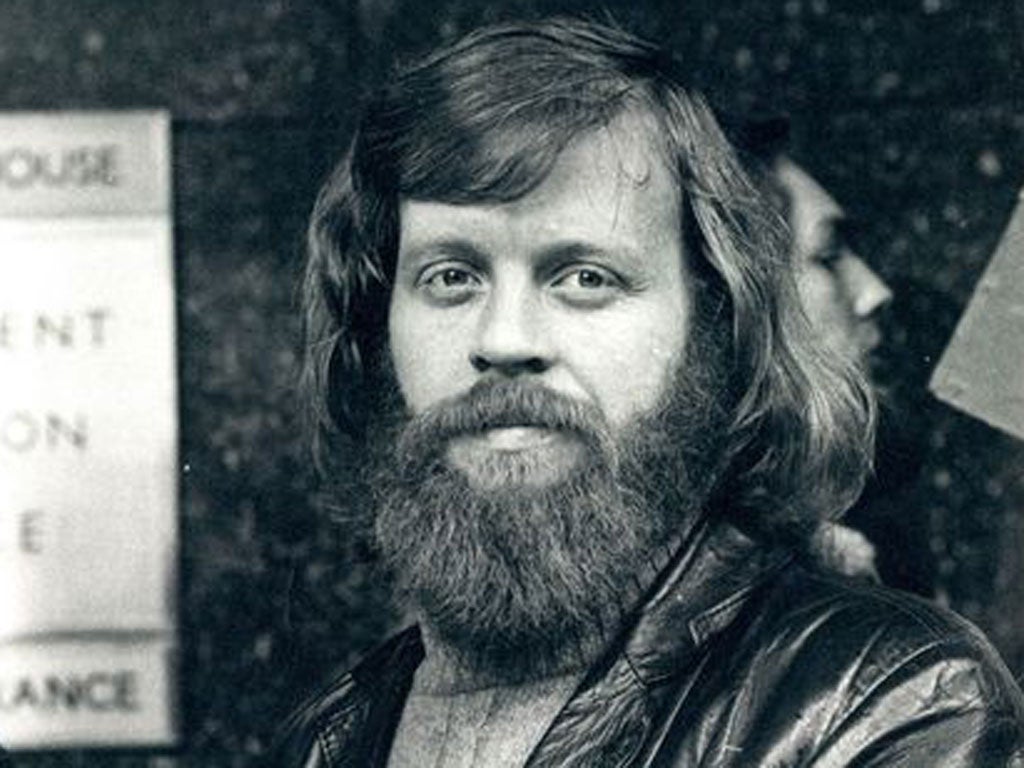Digby Jacks, Student leader who took on Thatcher – and won

Your support helps us to tell the story
From reproductive rights to climate change to Big Tech, The Independent is on the ground when the story is developing. Whether it's investigating the financials of Elon Musk's pro-Trump PAC or producing our latest documentary, 'The A Word', which shines a light on the American women fighting for reproductive rights, we know how important it is to parse out the facts from the messaging.
At such a critical moment in US history, we need reporters on the ground. Your donation allows us to keep sending journalists to speak to both sides of the story.
The Independent is trusted by Americans across the entire political spectrum. And unlike many other quality news outlets, we choose not to lock Americans out of our reporting and analysis with paywalls. We believe quality journalism should be available to everyone, paid for by those who can afford it.
Your support makes all the difference.Digby Jacks was instrumental in turning the National Union of Students into an effective lobbying and campaigning body, which stopped the then Education Minister Margaret Thatcher from introducing policies which would have restricted the autonomy and finances of the various students' unions.
Elected NUS president in 1971, Jacks, along with his predecessor Jack Straw – both members of the broad left – had defeated an anti-communist alliance, becoming the first left-wingers to be elected to the post since the Cold War. Jacks, the first communist elected, with his long red hair and beard, full of energy and hard-working, quickly became a hate figure in the press, rebuffing attacks by telling NUS members that he should be judged by what he did.
By the time he left the presidency in 1973 he had united the student body into a cohesive force, bringing it into mainstream left-wing politics without losing the support of the centre. His forthright professional approach coupled with considerable charm won him allies not only among the students but also among education correspondents, many of whom listened carefully to him once they learned he talked sensibly. One insisted that his news desk should allow Jacks to be reported as a serious, thoughtful man.
His election coincided with that of a Conservative government and with it the appointment of Margaret Thatcher as Education Minister. He led one of the NUS's first major mass protests against her proposals, which would have resulted in the power of the union being curtailed. Over 40,000 students later joined a national demonstration in London which resulted in Thatcher dropping her plans.
Jacks, the son of a building surveyor, was born and brought up in Charlton, London, and studied biology at King's College London. At that time students in Europe wanting change were rising up against the establishment, influencing many of the British students, among them Jacks. He studied for a teaching diploma at the Institute of Education, working for a short time at Holland Park Comprehensive in London before being elected to the National Executive Committee of the NUS in 1969.
Under Jacks, the leadership of the NUS took a more positive role in the relationship between universities and students, often arbitrating during disputes, giving support to occupations, and when talks did break down organising national demonstrations of solidarity. Criticised by both left and right he believed that the union should take a responsible attitude towards trying to find a solution to disputes.
He was disappointed, but took a pragmatic approach when an increase to the student grant system of an extra £10 million he had negotiated was turned down by his conference on the grounds that it was insufficient and that the demands of the wage campaign would only be met when the "organised working class can defeat the wage freeze". John Randall who succeeded Jacks as president, recalled: "Those who feared that the election of a communist would damage the NUS were proved wrong. Digby was both comfortable and effective in his dealings with the Conservative government and the educational establishment."
He was also responsible for widening the international interests of the NUS, encouraging it to discuss issues such as support for the Vietnamese people, and making contacts with European student movements – policies previously shunned by right-wing NUS administrations.
His 1975 book Student Politics and Higher Education set out his views on student politics, charting the historical development of the student movement and reflected his belief that the NUS had to take a responsible attitude towards education. He would eventually donate his papers to the NUS Historical Project. He wrote: "My 18 months [as NUS President] were the best years of my life ... when I left I felt like a jilted lover."
On leaving the NUS he became a Divisional Officer for the Association of Scientific, Technical and Managerial Staffs, one of the few NUS presidents to become a full-time union official, staying on to become Assistant General Secretary when it became the Manufacturing, Science and Finance Trade Union. He undertook responsibility for looking after those working in the finance industries.
On retirement he served as a Labour councillor in Hounslow and became Secretary of the Alliance for Finance, an independent confederation of finance unions and staff representative bodies of financial workers.
Digby Jacks, student leader, trade unionist and local councillor: born London 16 May 1945: married 1969 Sonia Deveraux (divorced 1974; one son, one daughter); died London 21 October 2011.
Join our commenting forum
Join thought-provoking conversations, follow other Independent readers and see their replies
Comments